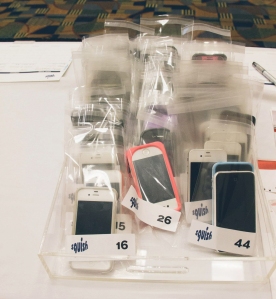“Youth does not need friends – it only needs crowds.”
Zelda Fitzgerald
In the seventeenth century, we knew we existed, Descartes said, because “I think, therefore I am” (cogito ergo sum in Latin). Being able to doubt our existence demonstrated that we had an existence to do the doubting. In the twenty-first century, what is known as the cogito argument in philosophy has, according to Sherry Turkle, morphed into “I share, therefore I am.” We know we exist because we have constructed a social media edifice that has, tweet by tweet, text by text, pixel by pixel, come to prove our existence. The problem is that our shared construct bears little resemblance to our reality. For many people, our social technological creations seem, if not to have replaced, to have refracted and obscured our physical existence. If we do not share, does that mean we are without existence? Amber Case, (a cyborg anthropologist!) makes the point that we put more effort into this second, digital self than we do into our analog selves.
 Inspired by Sherry Turkle’s research about the insinuation of technology into our lives, I began door checking smart phones at several of my Art of Conversation workshops. What I wanted to achieve was not a sanctimonious sermon about the ill effects of technology, but a considered, self-reflective conversation by each participant about the place of technology in their lives. It was common for participants to express a sense of relief that they were permitted to be offline, and that they experienced a deeper engagement with those around them. One participant said, “It was very empowering to see how people interacted without their cell phone, and it is something that I have since worked on – to spend less time engrossed in my phone.” It is a sad indictment that we have relinquished to technologies and the “grid” so much control of our lives and of our values.
Inspired by Sherry Turkle’s research about the insinuation of technology into our lives, I began door checking smart phones at several of my Art of Conversation workshops. What I wanted to achieve was not a sanctimonious sermon about the ill effects of technology, but a considered, self-reflective conversation by each participant about the place of technology in their lives. It was common for participants to express a sense of relief that they were permitted to be offline, and that they experienced a deeper engagement with those around them. One participant said, “It was very empowering to see how people interacted without their cell phone, and it is something that I have since worked on – to spend less time engrossed in my phone.” It is a sad indictment that we have relinquished to technologies and the “grid” so much control of our lives and of our values.
“What’s wrong with conversation?”
Sherry Turkle
The answer to Turkle’s question, “What’s wrong with conversation?” she says turns out to be that, “It happens in real time. And you can’t control what you are going to say.” Being mentally, physically and emotionally present with others, having a sense of belonging, engaging in conversation, requires a degree of courage. It can be a messy, uncertain interaction.
Turkle notes that, “We expect more from technology than we do from each other.” That tendency toward favoring the inanimate, or the discrete, requires corrective action, yet we cannot reject technology. We have always evolved within the natural, physical world (ourselves included) in tandem with our capacity to shape our experience of it by virtue of our intellect and creative tools. Our relationship with technology needs to be recalibrated, not discarded. If anything, it is not technology of itself that is the problem, rather it is the ongoing, challenging work of being human. As Alexis Madrigal points out in his essay in The Atlantic, “My own view is that life, itself, is the toxic and addictive bit.”
As we continue to examine the twenty-first century version of “the cogito” and what it means to exist, to be alive and be human, technology is equal measure treasure and treachery, and the internet inspirational and insidious. The task before us is to embrace technology within our lives, and to determine the terms of that rapport, while still pursuing lives that have an authentic purpose derived from true community and belonging.

Trackbacks/Pingbacks